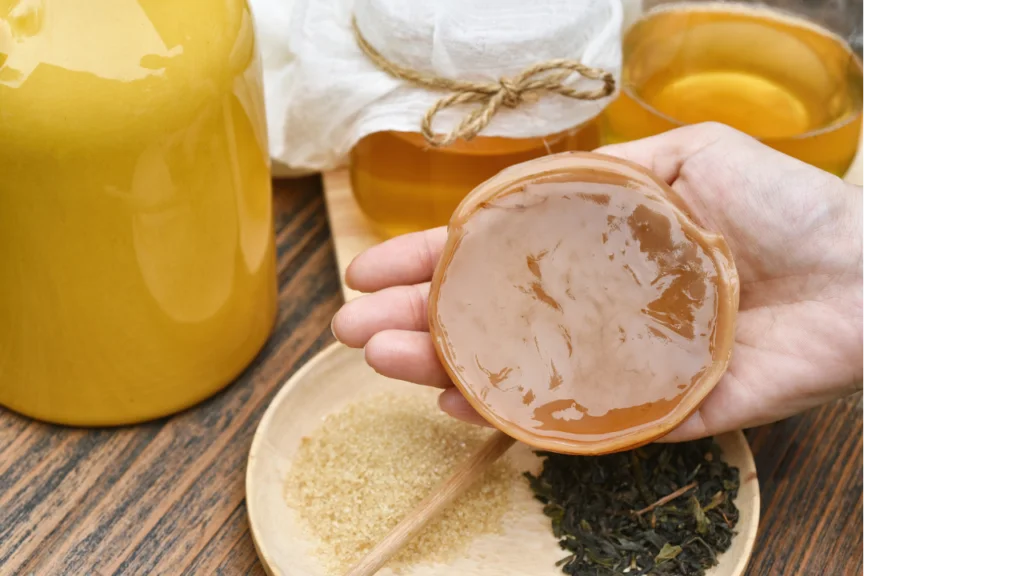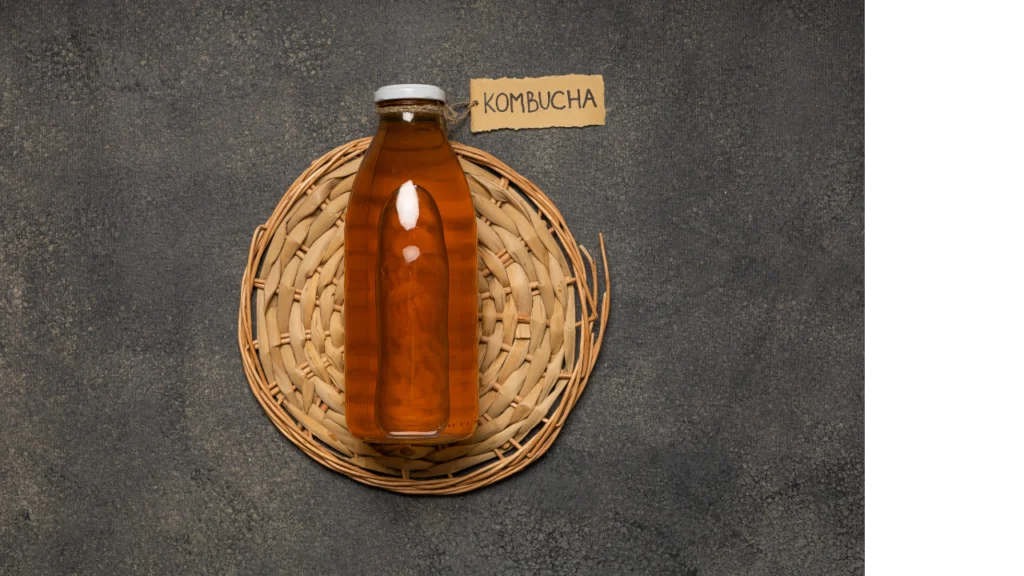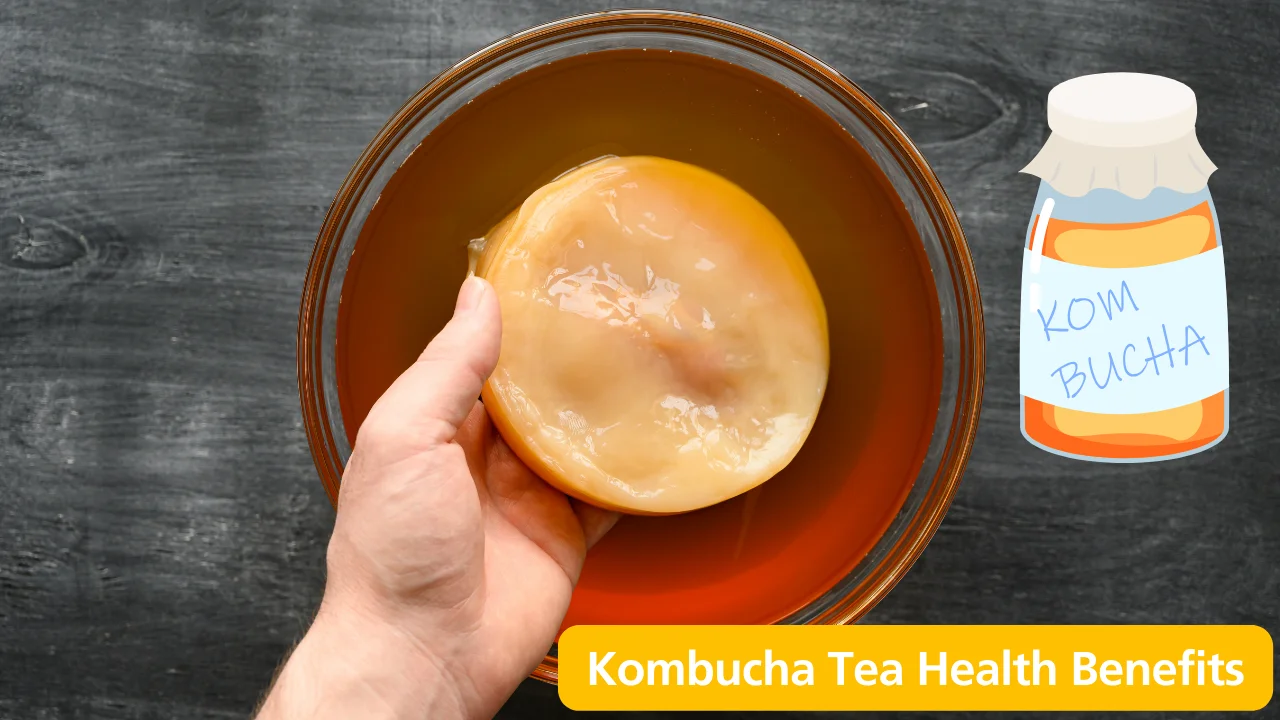Welcome to the world of Kombucha, a beverage gaining popularity for its supposed health benefits. In this article, we’ll dive into what Kombucha is, its history, nutritional composition, and most importantly, its myriad of health benefits. So, grab your favorite cuppa, and let’s explore the wonders of Kombucha tea!
What is Kombucha Tea?
Kombucha is a fermented tea that has been consumed for centuries, originating from China around 220 BCE. It is made by fermenting sweetened tea with a symbiotic culture of bacteria and yeast (SCOBY). This fermentation process produces a slightly effervescent drink with a tangy flavor profile.
History of Kombucha
The history of Kombucha is steeped in legend and folklore. It is said to have been revered as the “Tea of Immortality” in ancient China and has been consumed for its health benefits across various cultures, including Russia, Japan, and Eastern Europe.
Nutritional Composition
Kombucha is not only delicious but also packs a punch in terms of nutritional value. Let’s break down its key components:

Acetic Acid
One of the primary components of Kombucha is acetic acid, which is also found in vinegar. Acetic acid has been linked to various health benefits, including antimicrobial properties and improved digestion.
Probiotics
Thanks to the fermentation process, Kombucha is rich in probiotics, also known as “good” bacteria. These probiotics promote gut health by restoring the natural balance of microorganisms in the digestive system.
Antioxidants
Kombucha contains antioxidants, such as polyphenols, which help combat oxidative stress in the body. These antioxidants may contribute to overall health and may even have anti-inflammatory properties.
Health Benefits
Now, let’s explore some of the remarkable health benefits associated with drinking Kombucha tea:
Improved Digestion
The probiotics present in Kombucha support a healthy gut microbiome, which can aid in digestion and alleviate symptoms of digestive issues such as bloating and indigestion.

Enhanced Immunity
The combination of probiotics and antioxidants in Kombucha can help bolster the immune system, making you less susceptible to infections and illnesses.
Detoxification
Kombucha is believed to aid in detoxification by supporting the liver’s natural detox processes. The antioxidants in Kombucha help neutralize harmful toxins in the body, promoting overall detoxification and cleansing.
Weight Management
Some studies suggest that the acetic acid in Kombucha may aid in weight management by suppressing appetite and promoting fat loss. Additionally, its low-calorie content makes it a healthier alternative to sugary beverages.
Making Kombucha at Home

Ready to brew your own batch of Kombucha at home? Here’s what you’ll need and how to do it:
Ingredients
To make Kombucha, you’ll need black or green tea, sugar, a SCOBY (symbiotic culture of bacteria and yeast), and starter liquid (previously brewed Kombucha).
Process
- Brew a pot of tea and dissolve sugar in it.
- Let the tea cool, then transfer it to a clean glass jar.
- Add the SCOBY and starter liquid to the jar.
- Cover the jar with a breathable cloth and secure it with a rubber band.
- Allow the mixture to ferment for 7-14 days, depending on your desired level of acidity.
- Once fermented, bottle the Kombucha and store it in the refrigerator to halt the fermentation process.
Potential Risks
While Kombucha offers numerous health benefits, it’s essential to be aware of potential risks associated with its consumption:
Acidity Concerns
The acidity of Kombucha may cause discomfort for some individuals, particularly those with sensitive stomachs or acid reflux. It’s best to consume Kombucha in moderation and listen to your body’s response.
Alcohol Content
During the fermentation process, Kombucha may contain trace amounts of alcohol. While these levels are typically low, individuals sensitive to alcohol should exercise caution, especially if consuming homemade Kombucha.

Contamination
Improper brewing or storage conditions can lead to contamination of Kombucha, resulting in harmful bacteria or mold growth. It’s crucial to follow proper hygiene practices and brewing guidelines to minimize the risk of contamination.
Conclusion
In conclusion, Kombucha tea offers a plethora of health benefits, from improved digestion to enhanced immunity. With its delicious taste and easy brewing process, it’s no wonder why Kombucha has become a staple in many households. Just remember to enjoy it in moderation and be mindful of potential risks. Cheers to your health!
FAQs (Frequently Asked Questions)
- Is Kombucha suitable for everyone?
- While Kombucha is generally safe for most people, individuals with compromised immune systems or certain medical conditions should consult with their healthcare provider before consuming it.
- Can I drink Kombucha every day?
- It’s generally safe to consume Kombucha in moderation, but drinking it excessively may lead to digestive issues or other adverse effects. Listen to your body and adjust your intake accordingly.
- How long does homemade Kombucha last?
- Homemade Kombucha can last for several weeks when stored properly in the refrigerator. However, its flavor and carbonation may diminish over time.
- Can I flavor Kombucha with fruits or herbs?
- Yes, you can customize the flavor of your Kombucha by adding fruits, herbs, or spices during the brewing or bottling process. Get creative and experiment with different combinations!
- Is Kombucha a good replacement for soda or sugary drinks?
- Absolutely! Kombucha offers a refreshing alternative to soda and other sugary beverages. Plus, its natural effervescence and tangy flavor make it a delightful thirst-quencher.
